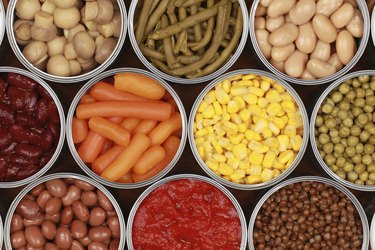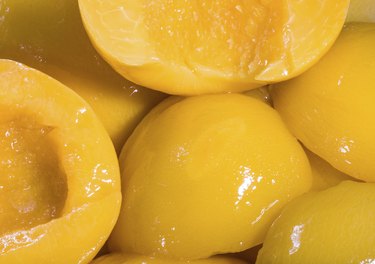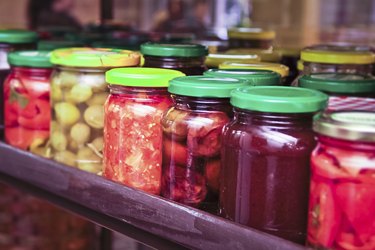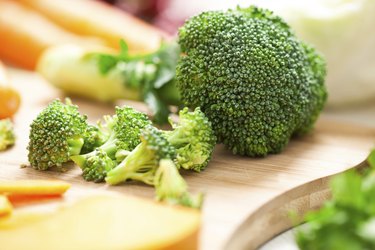
Canned goods are a good option if you're buying fruits or vegetables that are not in season, and it's sometimes cheaper to buy them canned, anyway. Canned foods also are more convenient than frozen, especially for storage and transportation. Although they have some advantages, canned foods also come with disadvantages, too.
High in Sodium
Video of the Day

Many canned foods contained high levels of sodium. The salt helps preserve the food, but can elevate blood pressure, cause you to retain water and increase calcium loss. Sodium is not always obvious. Even if the label doesn't indicate "salt" as an ingredient, it's still possible for the product to be high in sodium. Other forms of sodium added to canned foods include monosodium glutamate, sodium citrate and onion salt.
Video of the Day
High in Sugar

Canned fruits often contain heavy syrups. The added sugar makes the fruits more palatable and more dessert-like. Unfortunately, it also increases the calorie and carbohydrate count of the final product. One way to avoid this is to choose fruits canned in water or in their own juice.
Fewer Nutrients

Some fruits and vegetables are less nutritious when canned. According to Weight Watchers' registered dietitian Leslie Fink, removing the peel of a fruit or vegetable reduces its fiber content. Since this is a common practice in canned foods, you'll miss out on some important nutrients if you choose canned foods over fresh fruits. Vitamin C also is destroyed during the cooking and canning process. Other nutrients, including vitamin A, potassium and Lycopene, a caroteinoid, survive the canning process well.
Lack of Variety

Many fruits and vegetables simply don't take well to being canned. Some fruits can be put into cans, but are not very popular because they simply don't taste as good as they do when they are fresh. Finding canned broccoli, bananas, apples or potatoes is difficult, if not impossible. If you want a variety of fruits and vegetables, fresh or frozen offer more varieties.